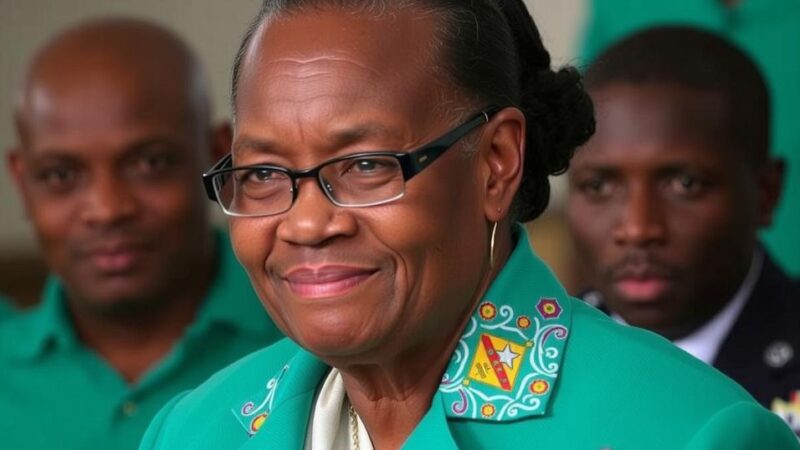Germany is set to hold snap elections on February 23 after Chancellor Scholz’s coalition collapsed. The date was agreed upon as a compromise between political parties, amid challenges such as inflation and geopolitical tensions. President Steinmeier supports the timeline, and the elections come following a likely confidence vote loss for Scholz.
Germany is poised to conduct snap elections on February 23, following the dissolution of Chancellor Olaf Scholz’s three-party coalition. The election date was determined through a compromise between the country’s major political factions, with the conservative opposition advocating for an earlier January date. Scholz’s preference for a later vote in mid-March, meant to allow adequate preparation, was overruled. President Frank-Walter Steinmeier has expressed support for this timetable, emphasizing the need for responsible cooperation among all parties to maintain the nation’s stability during this transitional period. The decision to move forward with elections comes on the heels of Chancellor Scholz facing a likely confidence vote on December 16, which he is expected to lose. Following this, Steinmeier will have 21 days to dissolve the Bundestag, with elections mandated to occur within the subsequent 60 days. This situation underscores the imperative for political stability in Germany as it grapples with pressing economic challenges, including inflation and geopolitical tensions, notably arising from the war in Ukraine. The backdrop of these elections reveals a tumultuous political landscape, with Scholz having taken office in late 2021 amidst a coalition that included the Greens and the Free Democratic Party (FDP). Discrepancies regarding fiscal policy recently culminated in the FDP exiting the coalition after the dismissal of their Finance Minister by Scholz. This instability is further exacerbated by the rise of the far-right Alternative for Germany (AfD), which has capitalized on public sentiments surrounding immigration, thereby complicating coalition dynamics in the Bundestag. Polling data indicates that while the center-right Christian Democratic Union (CDU) and its Bavarian counterpart, the Christian Social Union (CSU), currently lead with 32 percent support, they may require collaboration with the SPD and potentially a third party to secure a governing majority. Scholz’s Social Democratic Party remains steadfastly behind him, dismissing calls for a change in leadership as they gear up for the challenges of a winter campaign ahead of the elections.
The upcoming snap elections in Germany arise from the recent collapse of Chancellor Olaf Scholz’s governing coalition, which included the Social Democrats, the Greens, and the Free Democrats. This coalition faced significant internal strife, particularly over fiscal policy, leading to a breakdown of governance. The political climate in Germany is already fraught due to economic challenges, including diminishing growth and external pressures such as heightened geopolitical tensions resulting from the situation in Ukraine. The emergence of the far-right AfD party further complicates the political landscape, indicating a shift in voter sentiment and a potential challenge to traditional political alliances. As the country prepares for the elections, key parties are solidifying their positions amid high stakes, with various factions vying to establish a stable governing body capable of addressing domestic and international issues.
In conclusion, Germany’s decision to hold snap elections on February 23 represents a decisive move to restore political stability following the collapse of Chancellor Olaf Scholz’s coalition. With economic pressures looming and the political landscape shifting, the upcoming elections are critical for shaping Germany’s governance and response to internal and external challenges. The participation of voters during the winter months presents an additional challenge, influencing how political parties adapt their campaign strategies.
Original Source: www.aljazeera.com







